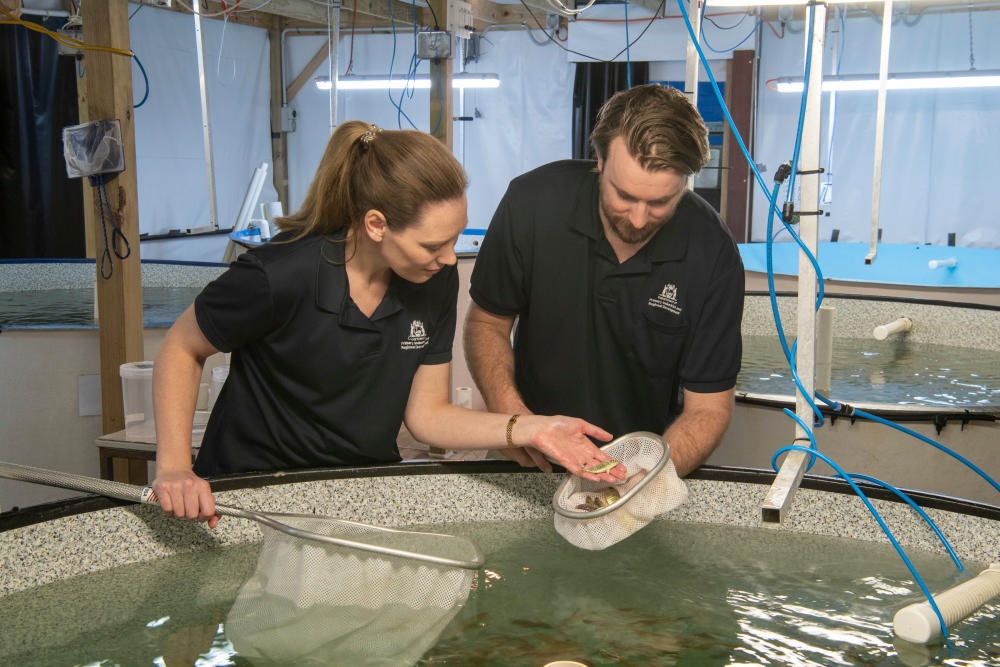
They have found a way to use SCP, derived from bacteria that use methane as their source of carbon and energy, to replace 25% of the fish meal in diets of juvenile yellowtail kingfish. This SCP has achieved equal growth and improved feed conversion ratio when compared with a commercial fishmeal diet.
Around the world every year, approximately 18 million tonnes of wild caught fish are converted into five million tonnes of fishmeal – 70 percent of which is used in aquaculture feeds. With demand for fish feeds rapidly growing, aquaculture operators are looking at ways to find alternative ingredients to improve productivity and sustainability.
Luke Pilmer, a DPIRD aquaculture technical officer, undertaking his PhD through the Centre for Sustainable Aquatic Ecosytems at Murdoch University, has published his findings in his first science paper on SCP replacing fishmeal in yellowtail kingfish. He worked with DPIRD’s Dr Lindsey Woolley and Dr Gavin Partridge and others at the Fremantle Hatchery.
Now the challenge for researchers is to find a way of improving the palatability of the single-cell proteins to make them more attractive to the yellowtail kingfish and potentially increase the percentage of SCP that can be used as a replacement for fishmeal.
Dr Woolley said the replacement of fishmeal was essential for the sustained growth of the aquaculture industry.
“Previous SCP trials we have done on Barramundi at the Marine Finfish Hatchery in Fremantle suggest we can use up to 75% of this alternative protein in combination with fishmeal and attain an increase in growth of the fish with a significantly improved feed conversion ratio,” Dr Woolley said.
“As well as single cell protein aquafeed trials, we have also used black soldier fly larvae to successfully replace fishmeal in a finfish diet and maintained good growth rates.
“We found black soldier fly larvae could replace as much as 50% of the fishmeal with equal growth and without health impacts on yellowtail kingfish. The larvae and the SCP may prove to be highly sustainable alternative proteins for the aquaculture industry.”
This research has been funded through the Fisheries Research and Development Corporation and industry partners, Indian Ocean Fresh Australia Pty Ltd and Ridley Agriproducts.
Picture caption: Dr Lindsey Woolley and PHD student Luke Pilmer led the kingfish trials.


